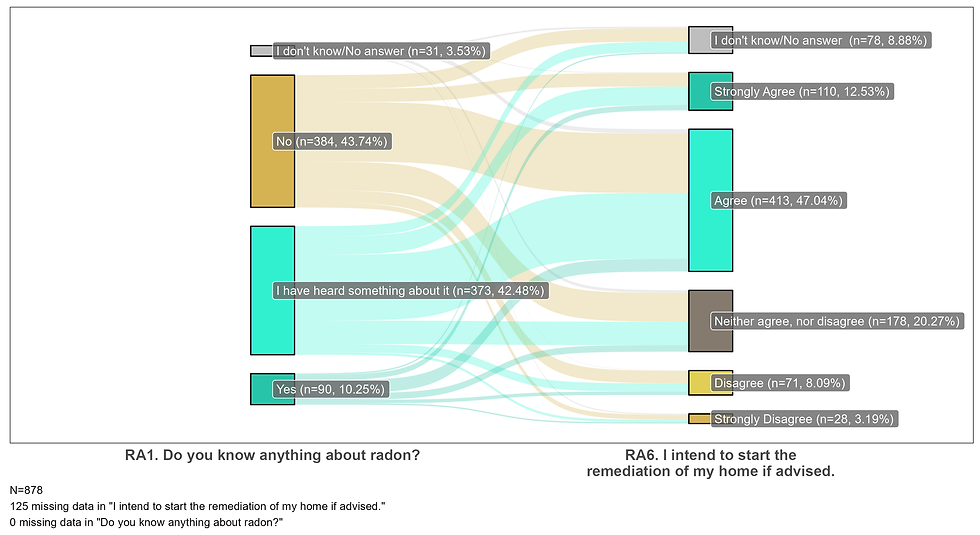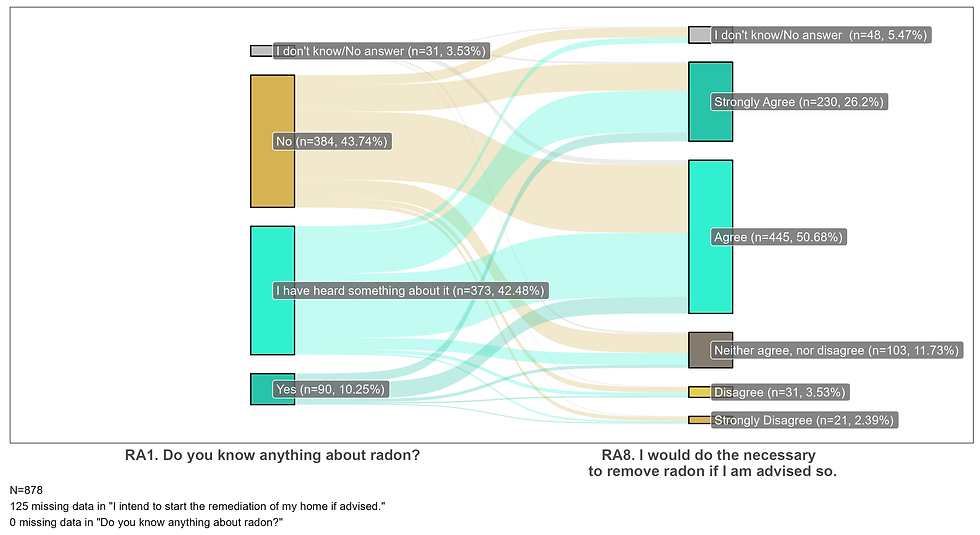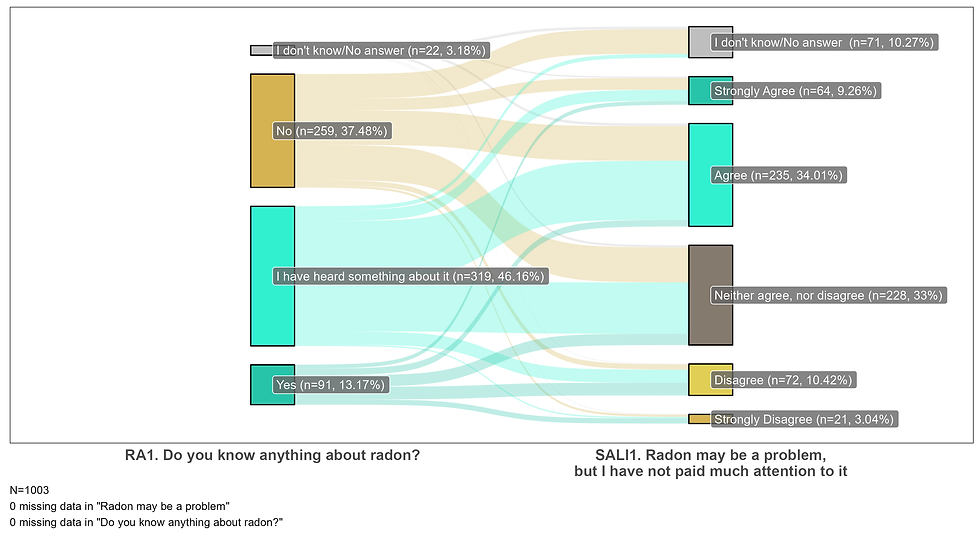
Findings for
Ireland
Cite as:
Perko T. (2025): RadoNorm European Radon Behavioural Atlas: Ireland, H2020 project RadoNorm, No 900009 https://www.radonorm.eu/
Methodology
Computer-Assisted Personal Interviews (CAPI) were conducted in Ireland using an online panel provided by Marketing Research company Kantar. A dynamic sampling approach was employed to achieve a sample as representative as possible of the adult population (aged 18+) in terms of gender, age, and region. Sampling quotas were guided by expected response rates across socio-demographic groups. When certain groups were underrepresented, additional participants were recruited to meet the predefined quotas, within the limitations of the panel.
Data collection began with a soft launch (N=200), followed by the main fieldwork conducted from January 13 to February 9, 2023. The fieldwork was carried out by Kantar, a company operating in compliance with the EU General Data Protection Regulation (EU-GDPR) and ESOMAR guidelines for market and social research.
The final sample consisted of N = 1,003 respondents, with a response rate of 17%. The average completion time for the questionnaire was 20.43 minutes. The respondents' air number (postal code) were linked to the level of radon risk in the region after the data collection. The questionnaire was collaboratively developed by RadoNorm, the Environmental Protection Agency (EPA) Ireland, and Trinity College Dublin. Data were analysed by SCK CEN, Belgium. Data are available at: DOI:10.20348/STOREDB/1179/1304]
Download the questionnaire PDF here.
Download the technical report PDF here.
Results
Radon awareness and protection behaviour
Are people in Ireland aware of radon and do they test and mitigate?



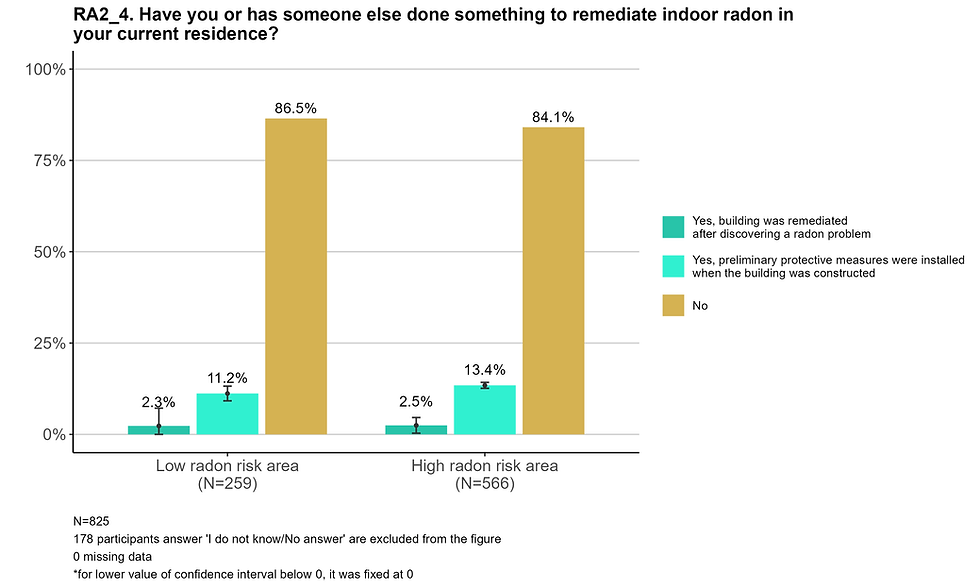

Intention to protect from radon
What is the public willingness to adopt radon protection measures in Ireland?
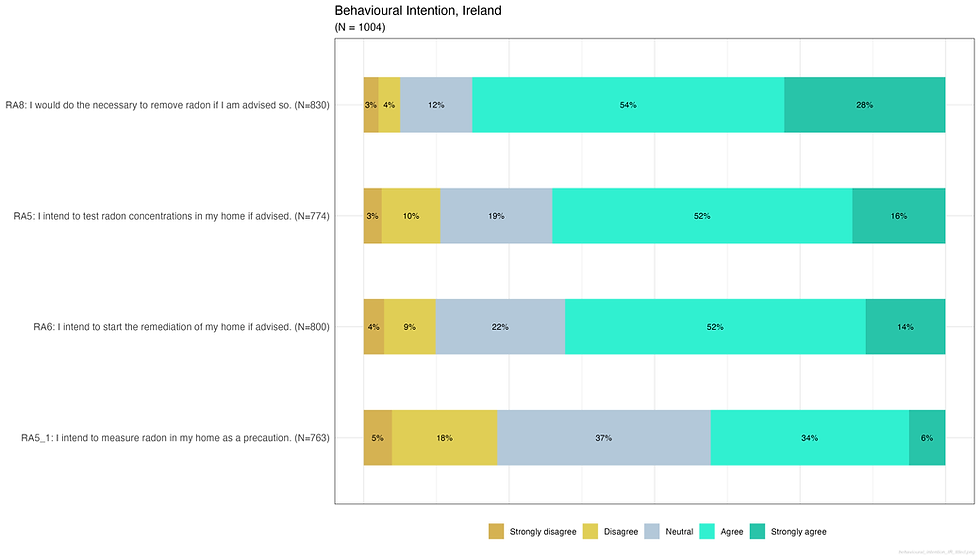
Radon Knowledge
How much people in Ireland know about radon?



Risk perception
How do people in Ireland perceive radiological, radon and other risks?

Confidence in authorities for risk management
To what extent do the Irish have confidence in their authorities' ability to manage risks?

Knowing radon stakeholders
Which stakeholders related to radon are known to the Irish?


Who in Ireland is recognized as a trustworthy source of information about radon risks?
Truthfulness of radon stakeholders



Which stakeholders involved in radon mitigation in Ireland are recognized as technically competent?
Competence of radon stakeholders

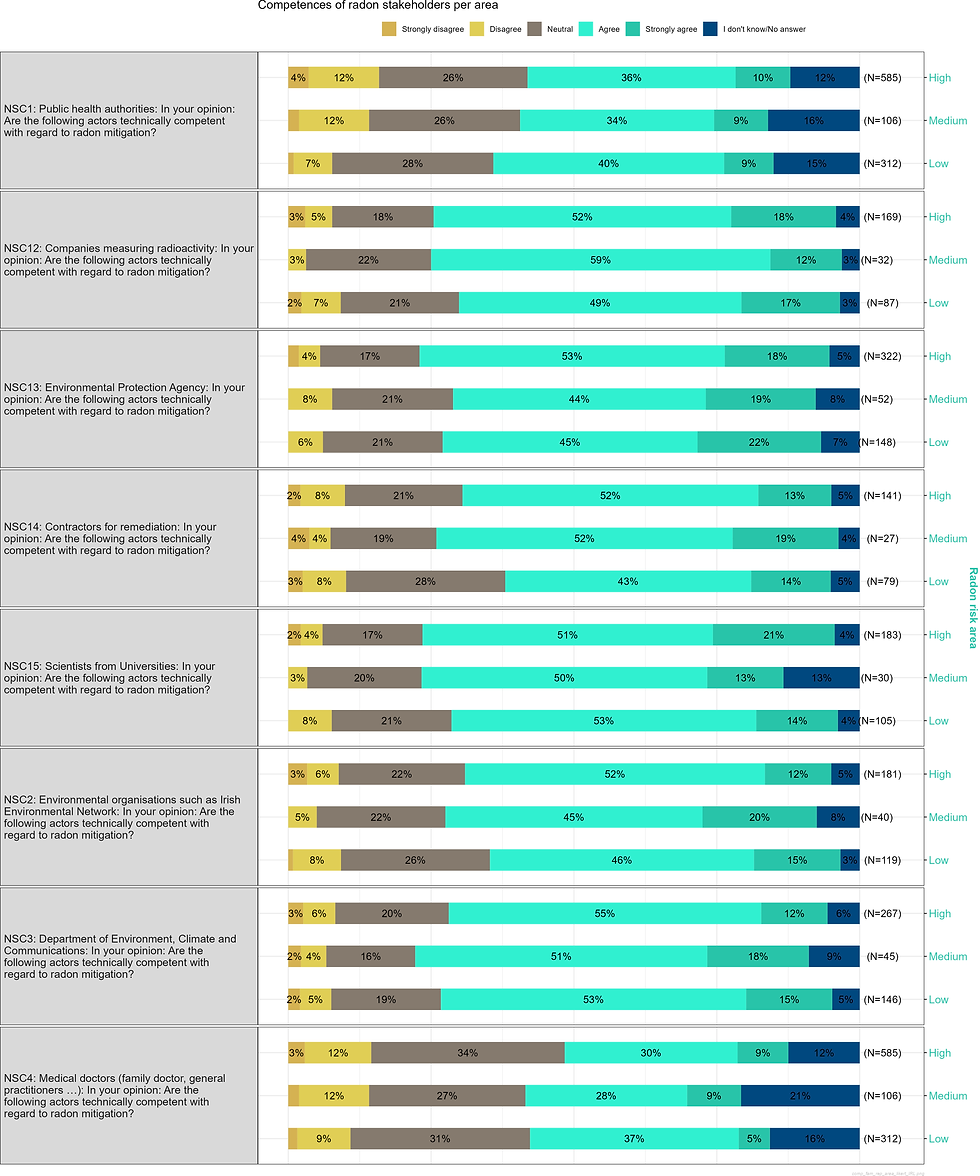

Severity
What are people's beliefs regarding the seriousness of negative consequences due to radon?
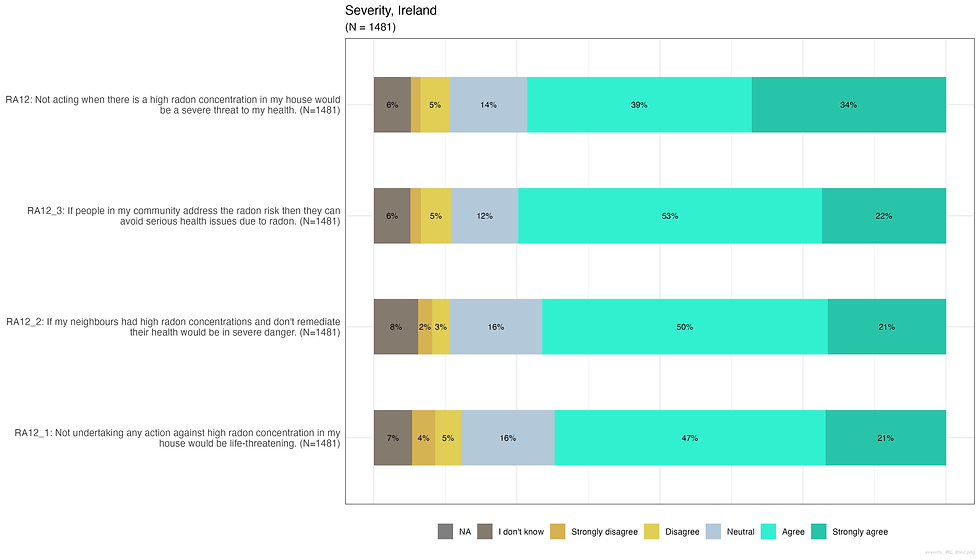
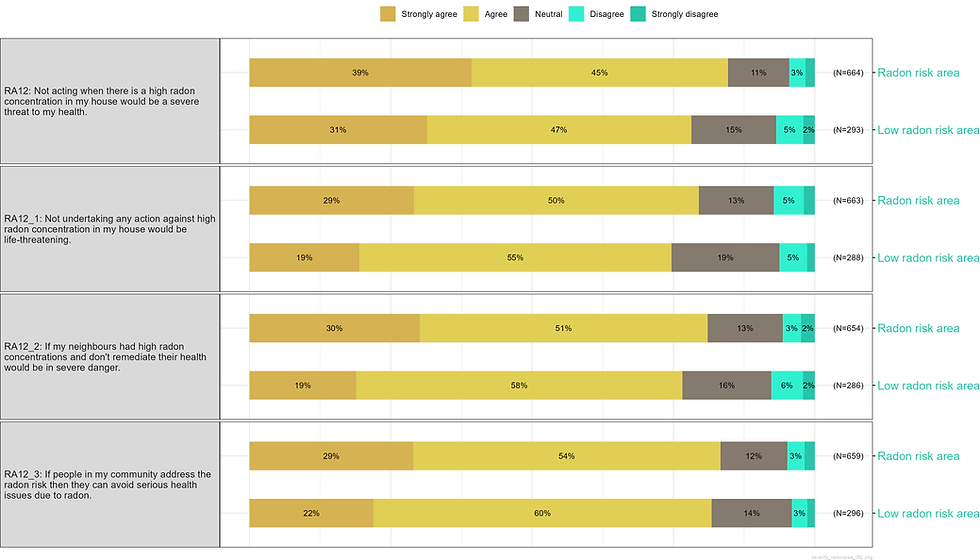

Susceptibility
Do people in Ireland believe that radon increases the likelihood of health consequences?


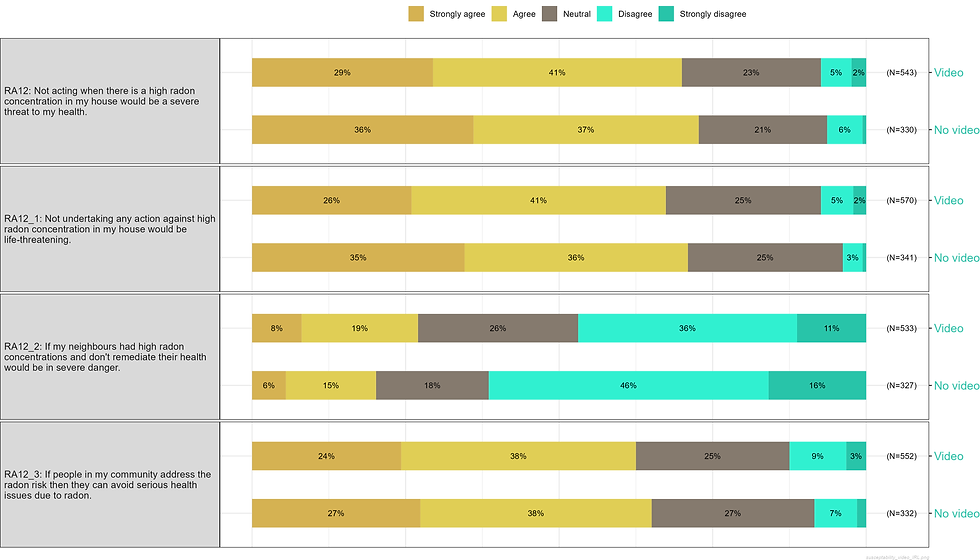
Response efficacy: remediation
Do individuals believe dwelling remediation is effective in reducing radon concentration?



Self-efficacy
Do residents in Ireland have confidence in their own ability to conduct radon testing and mitigation effectively?

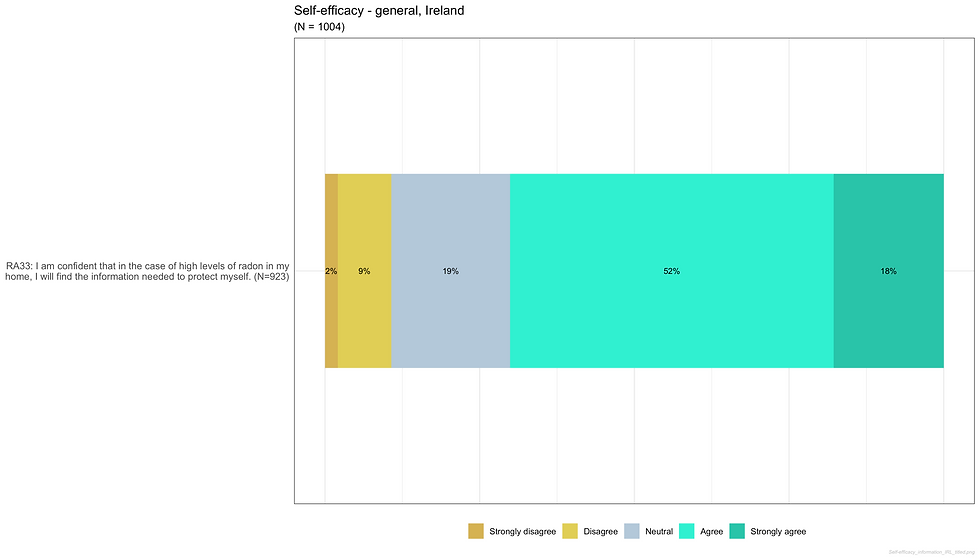
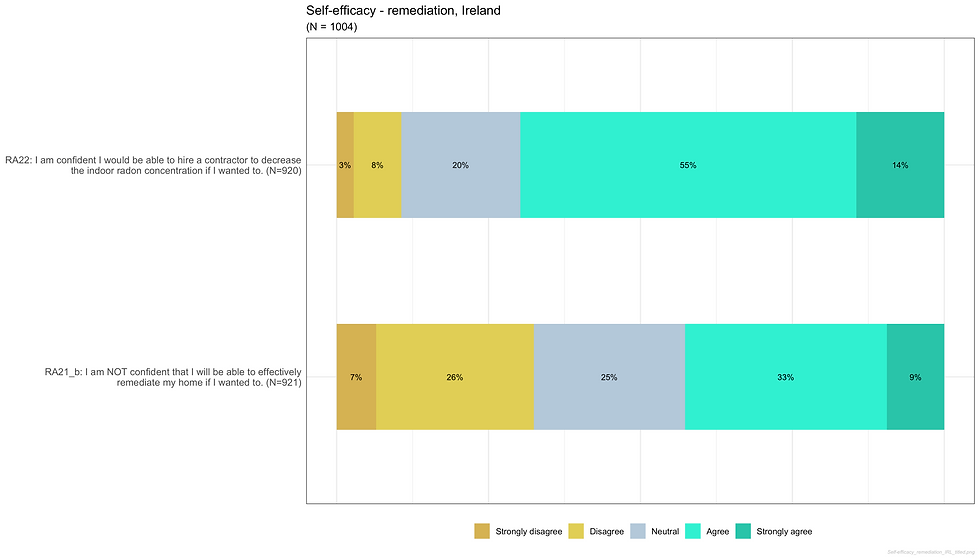
Perceived behavioural control: financial and other burden and ease
Is radon testing and mitigation perceived as a financial or other burden?
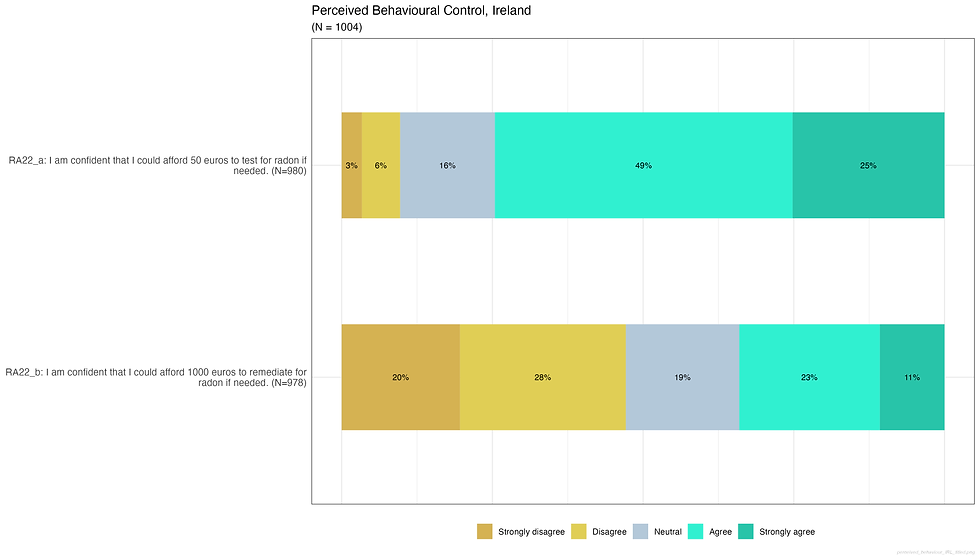

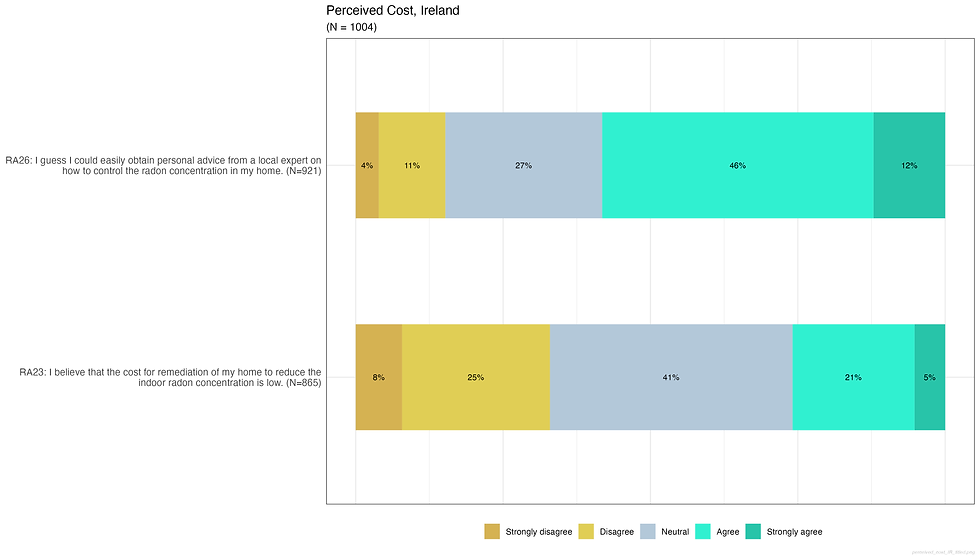

How strongly do the Irish feel attached to their homes?
Personal attachment
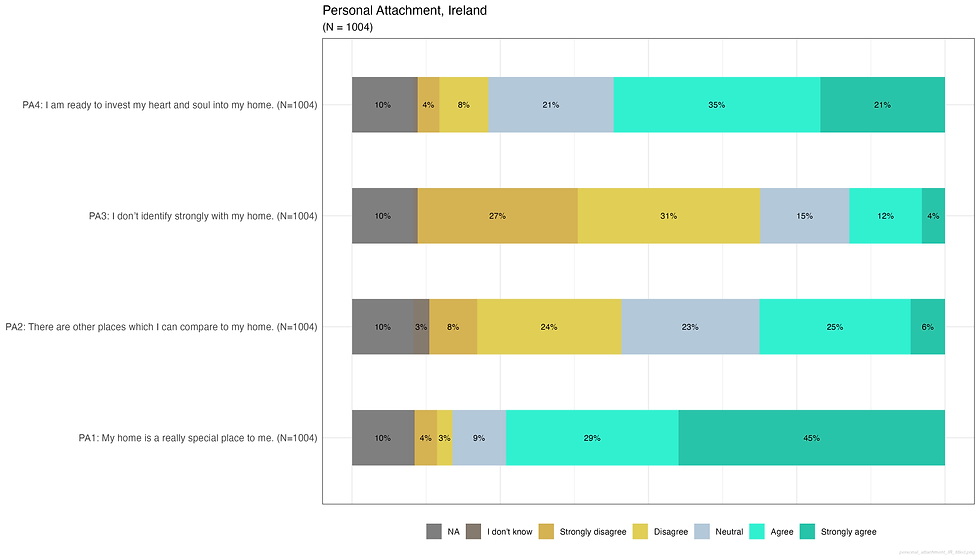
Anticipated emotions
What emotions do the Irish anticipate feeling if they do not take action against high indoor radon levels?

Social influence
What are the attitudes of respondents regarding social influence?
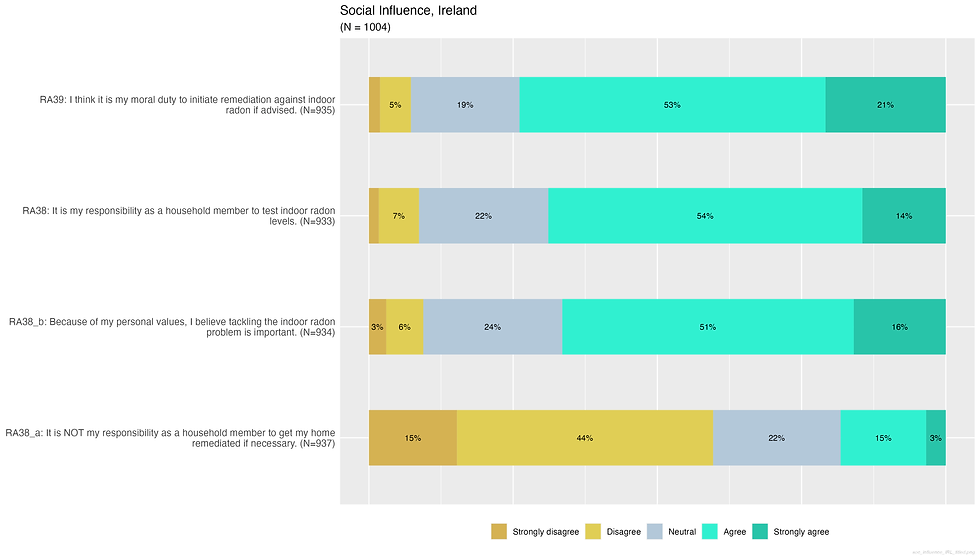
Moral norms
To what extent do the Irish believe it is their moral duty to protect themselves and others from radon exposure?

Descriptive norms
Is radon testing and mitigation a common practice within social groups?
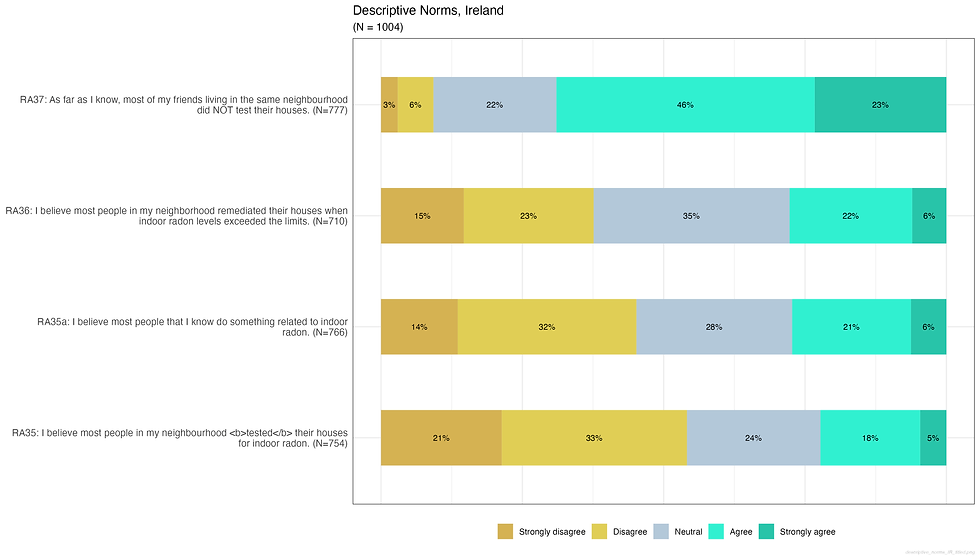
Moral values
To what extent do the Irish agree with statements reflecting moral values?

Aesthetic impact of remediation works on a dwelling
Do residents believe that radon mitigation perceived as a financial or other burden?

Economic impact of radon on a property value
Does a radon problem in a building negatively impact its financial value?

Subjective norms
Do family members and friends of resopondents care about radon-related issues?


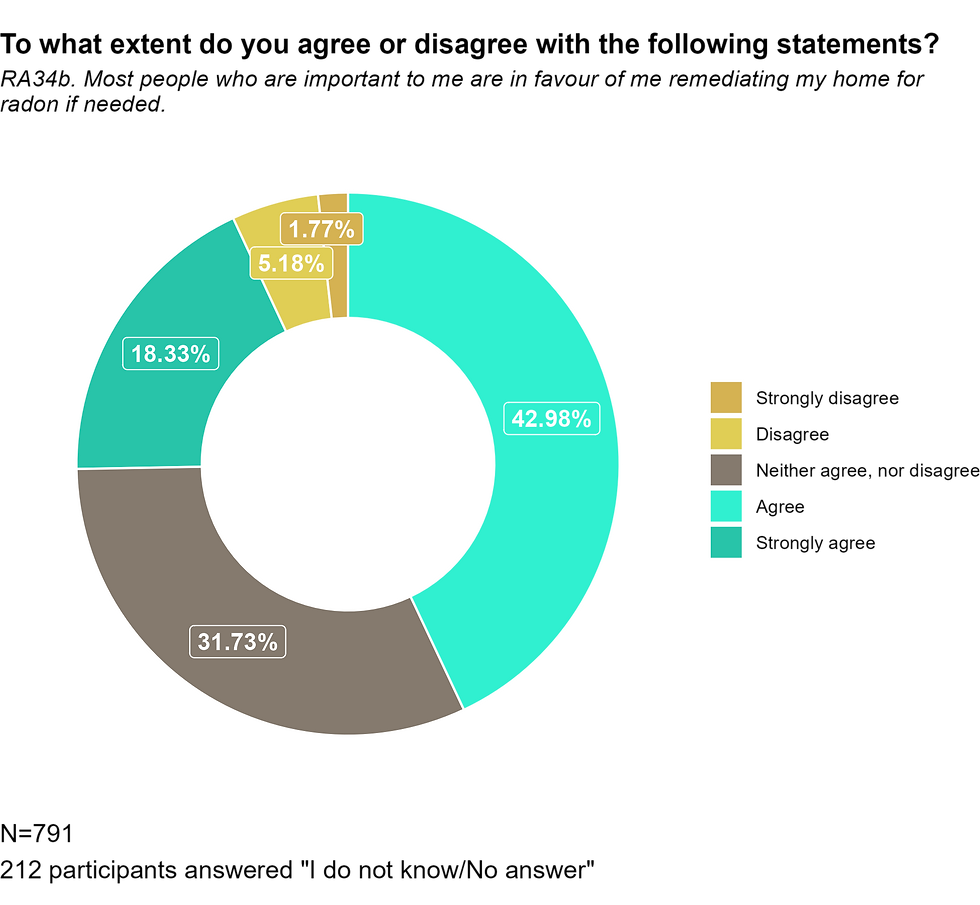

Health effect perception
Do individuals have acquaintances who may have experienced health issues as a result of radon exposure?
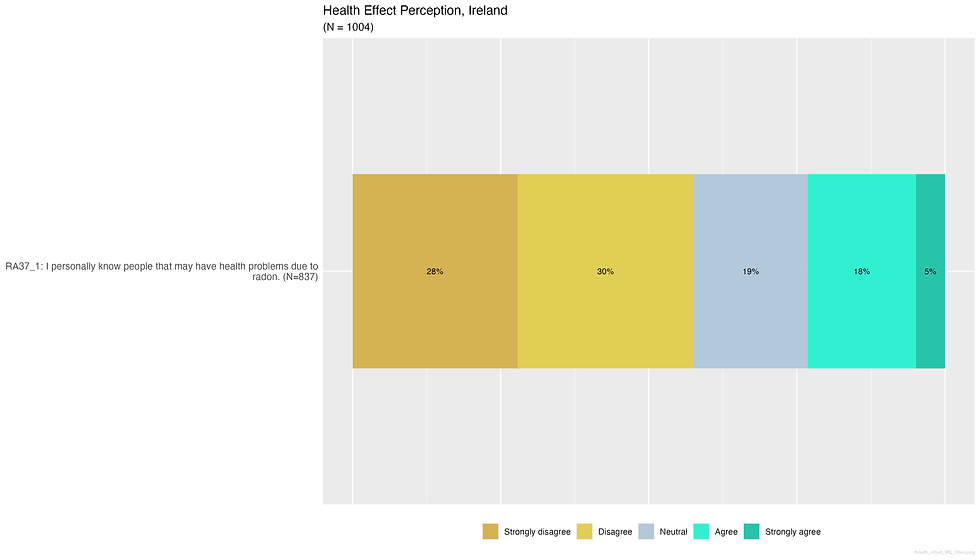
Stigma
Is there a risk of stigma associated with radon in dwellings?
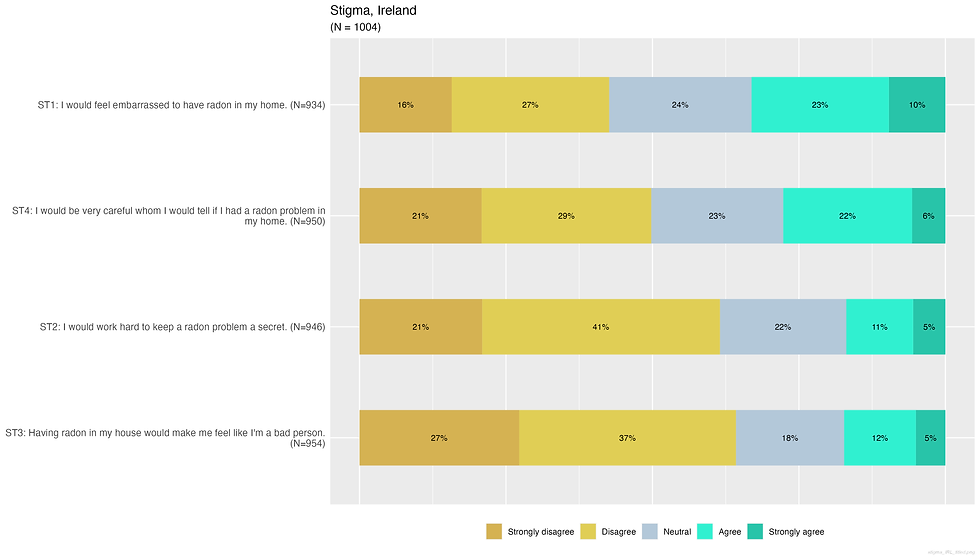
Information processing
How do people process information about radon remediation?
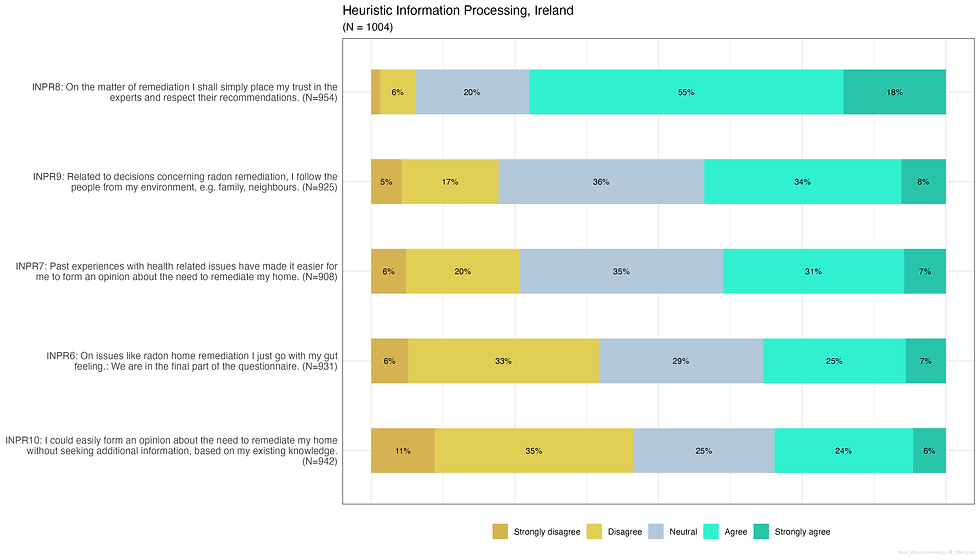

Information comprehensiveness
Is there enough information readily accessible?
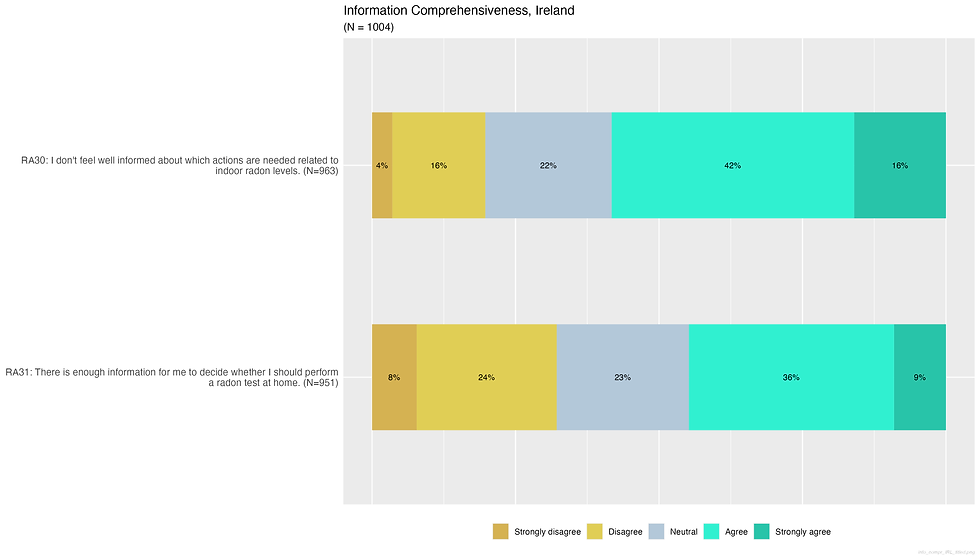
Information uncertainty
Is there too much uncertainty to make informed decisions?

Affective response to information
Does information related to radon elicit negative emotions?

Preference for post-survey radon related information
Which communication channels are recommended for radon-related communication?
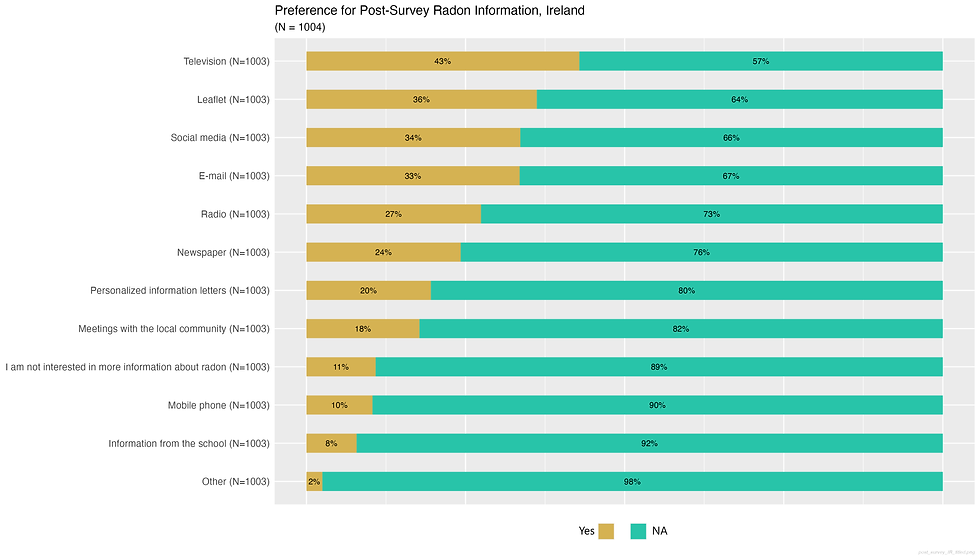
Trustworthiness of radon stakeholders
Who in Ireland is recognized as a trustworthy source of information about radon risks?

Factors Influencing Behavioural Intention
Radon awareness


Personal attachment
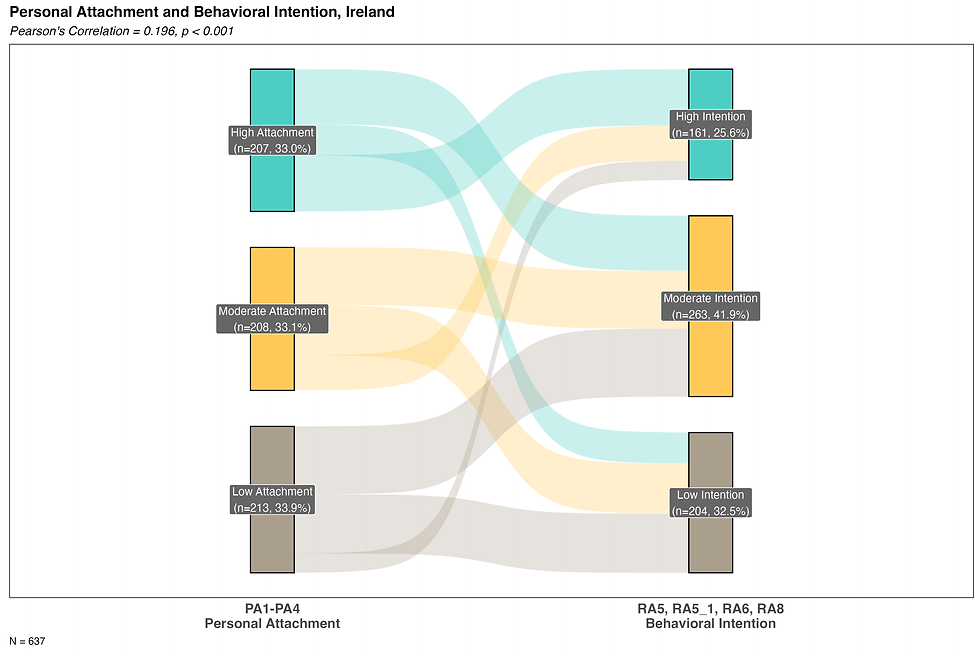
Risk perception
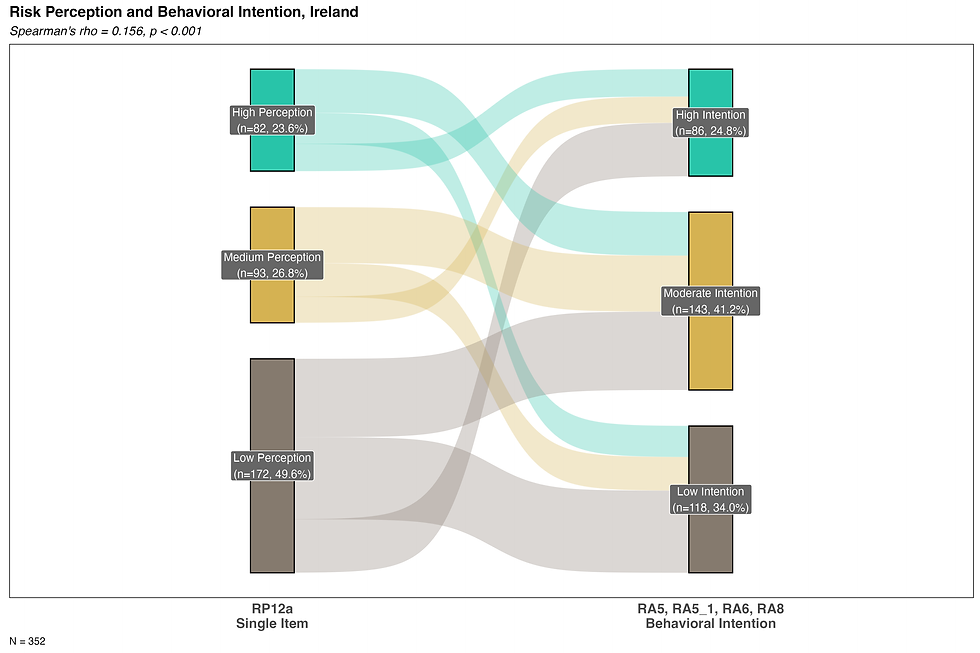
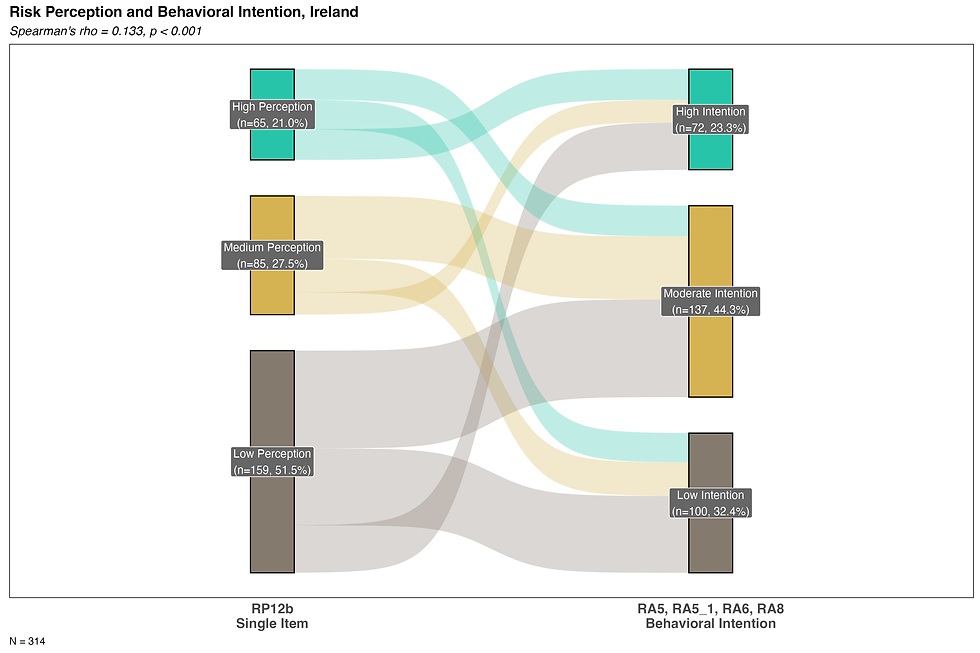
Confidence in authorities for risk management
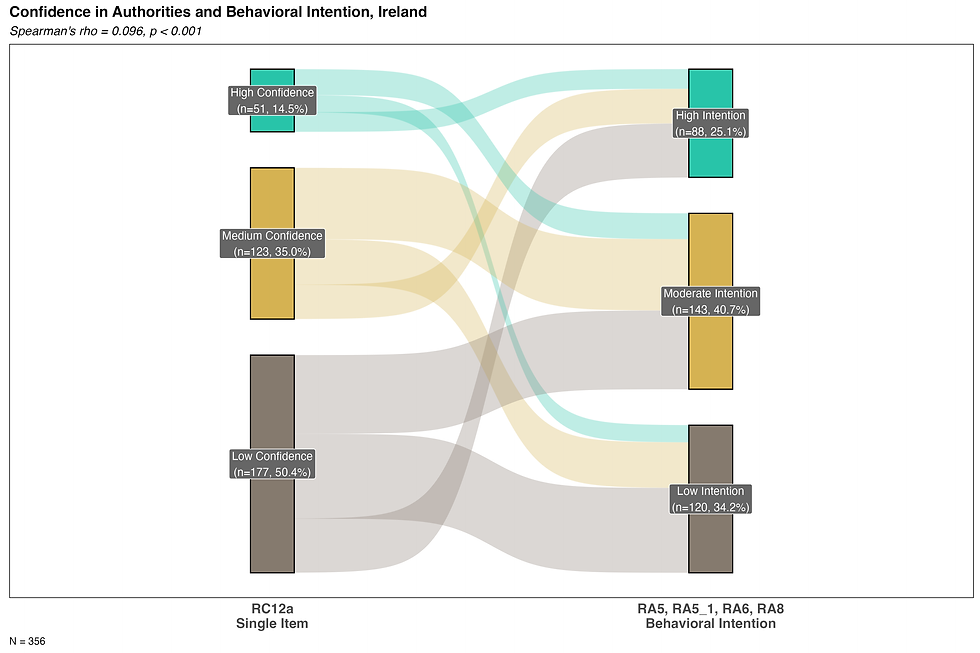

Severity
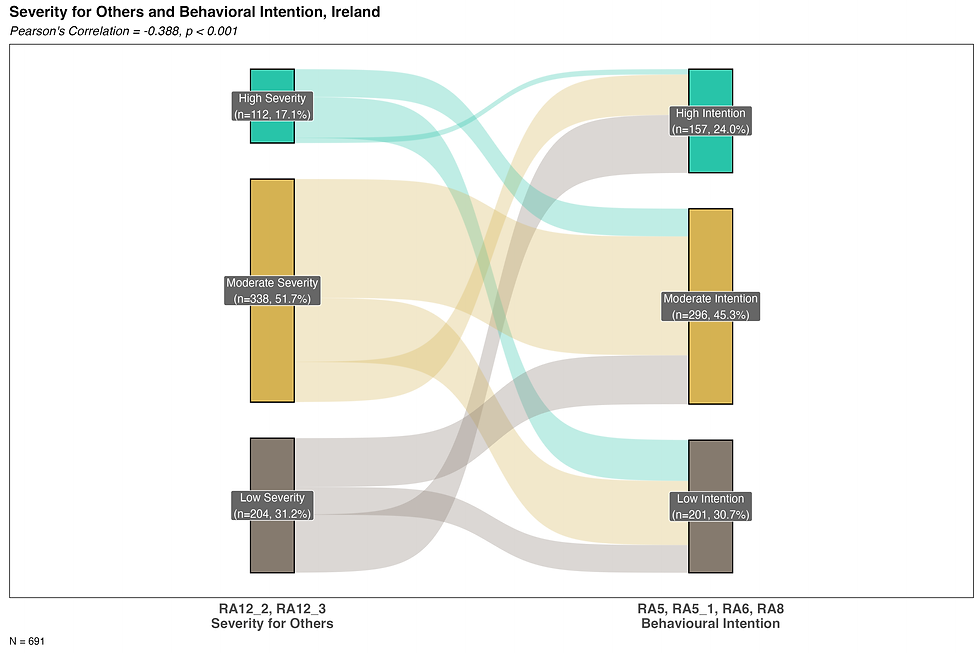

Susceptibility
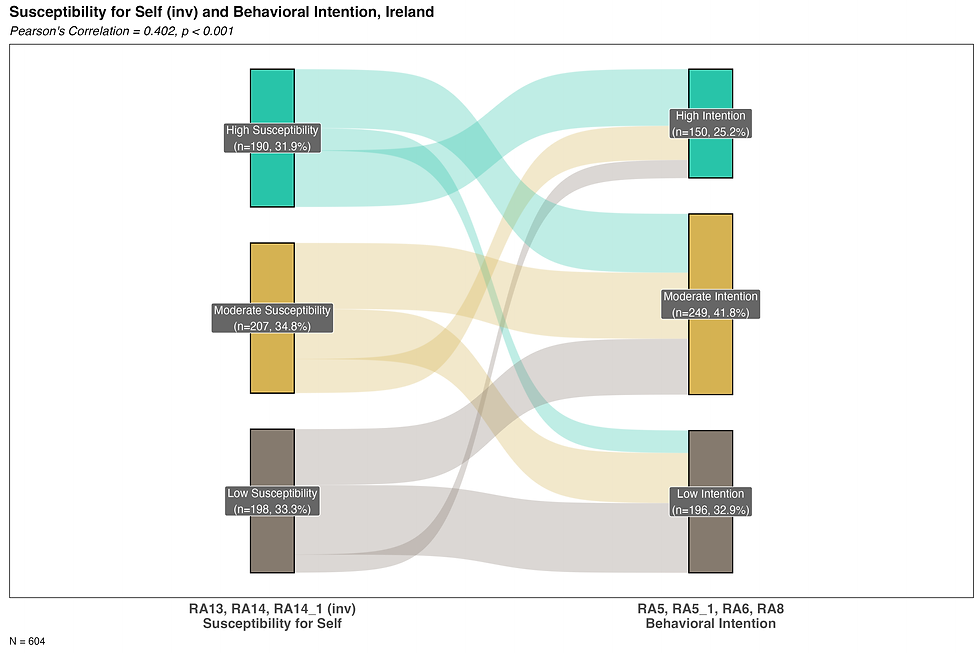
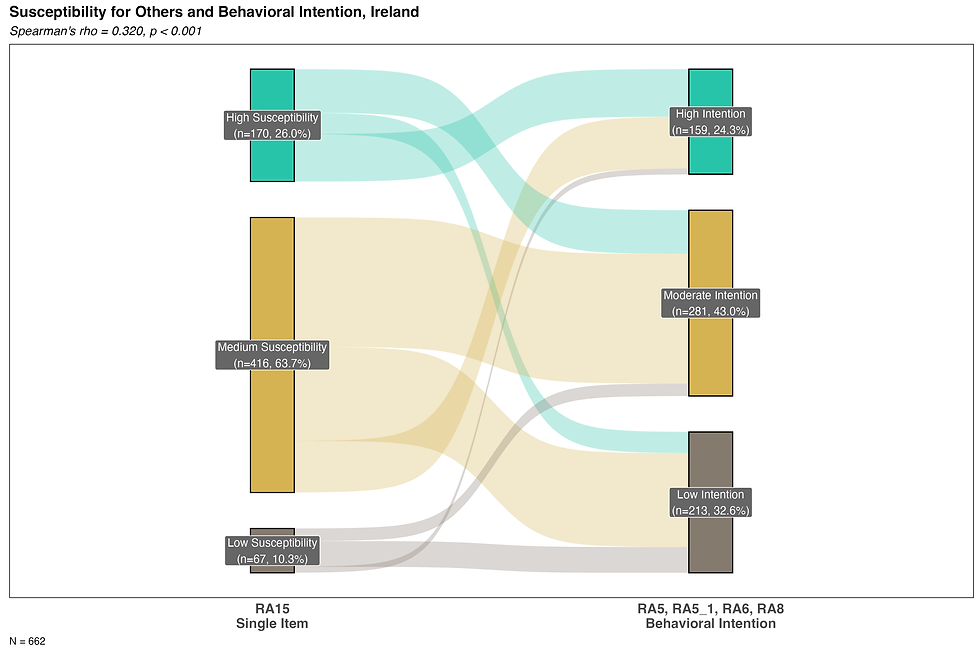
Response efficacy: remediation
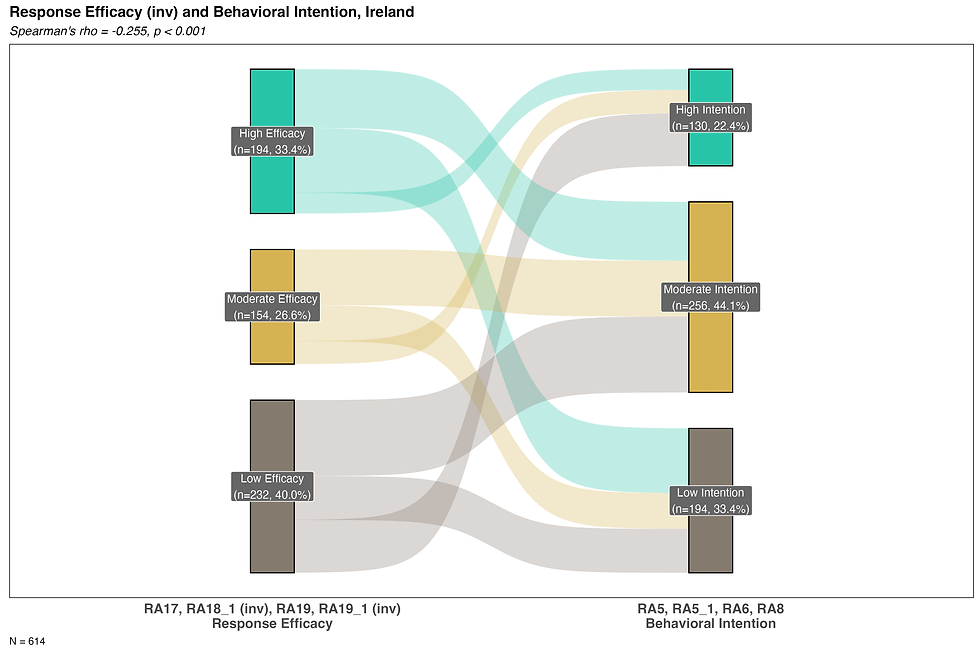

Self efficacy


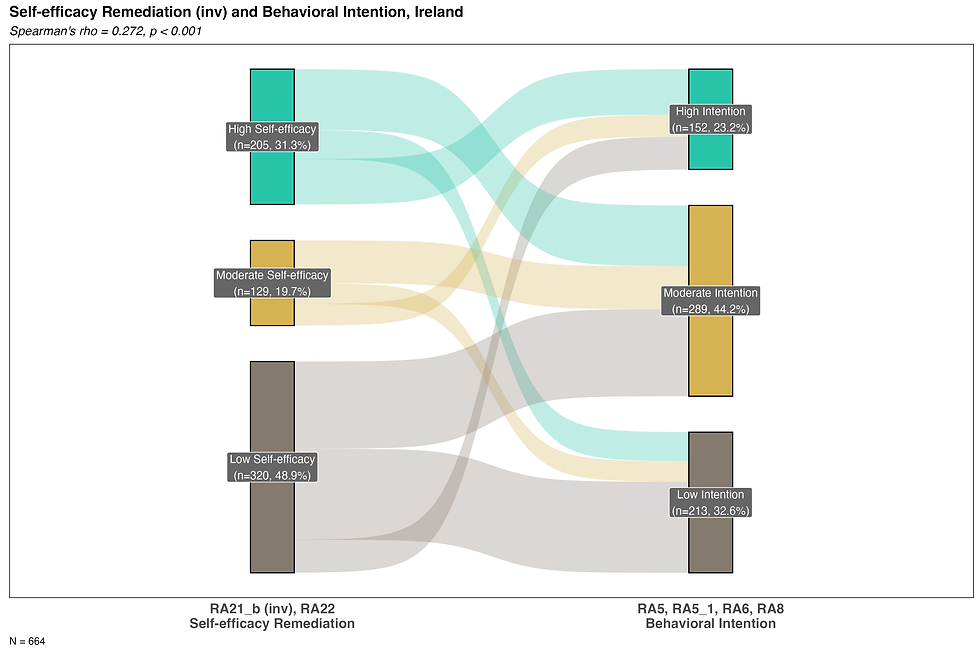
Perceived behavioural control: financial and other burden and ease
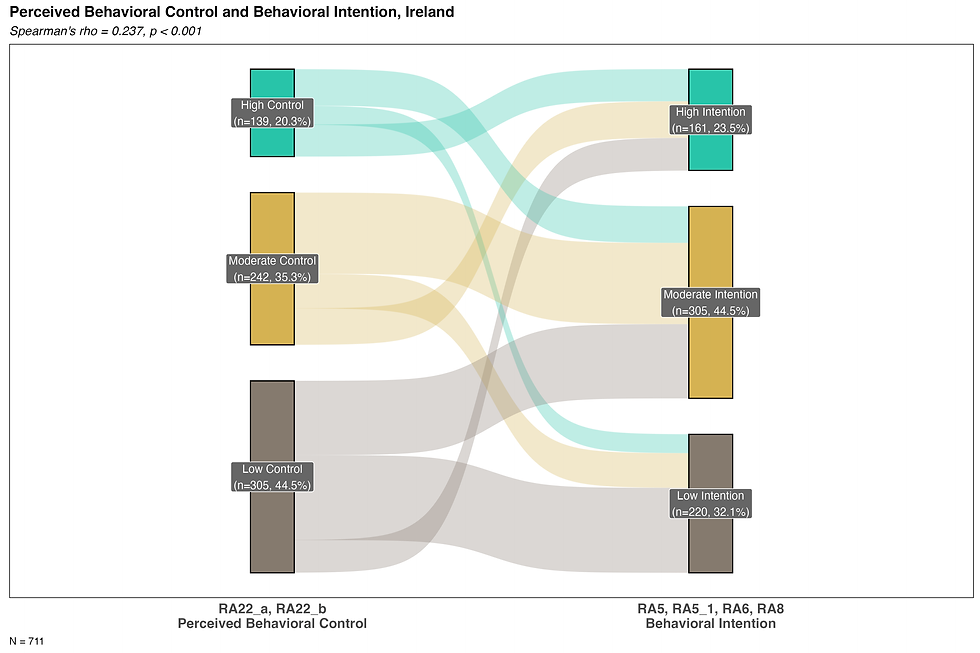


Perceived cost
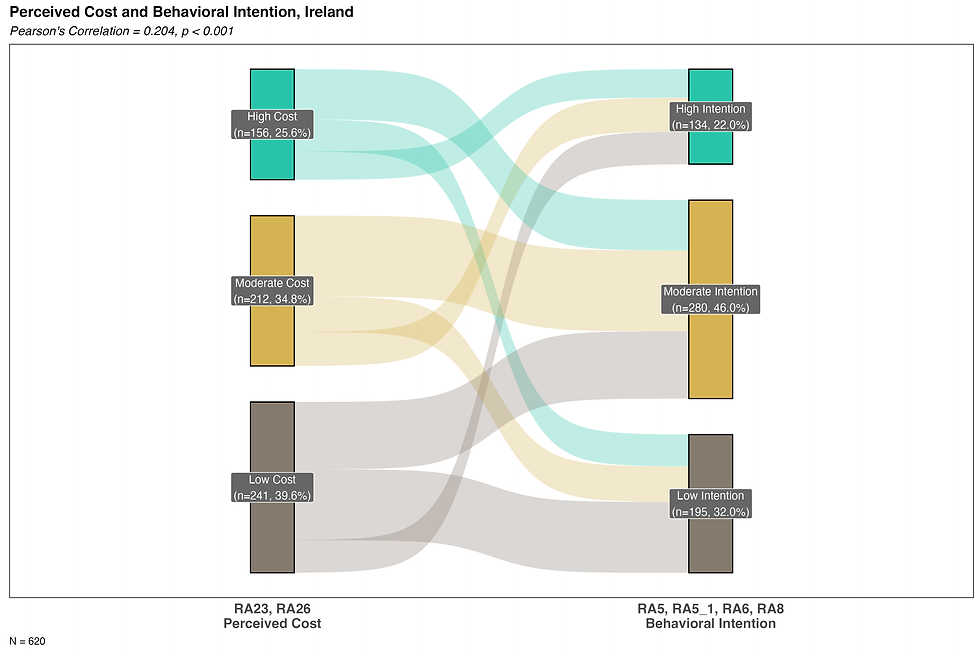


Aesthetic impact of remediation works on a dwelling
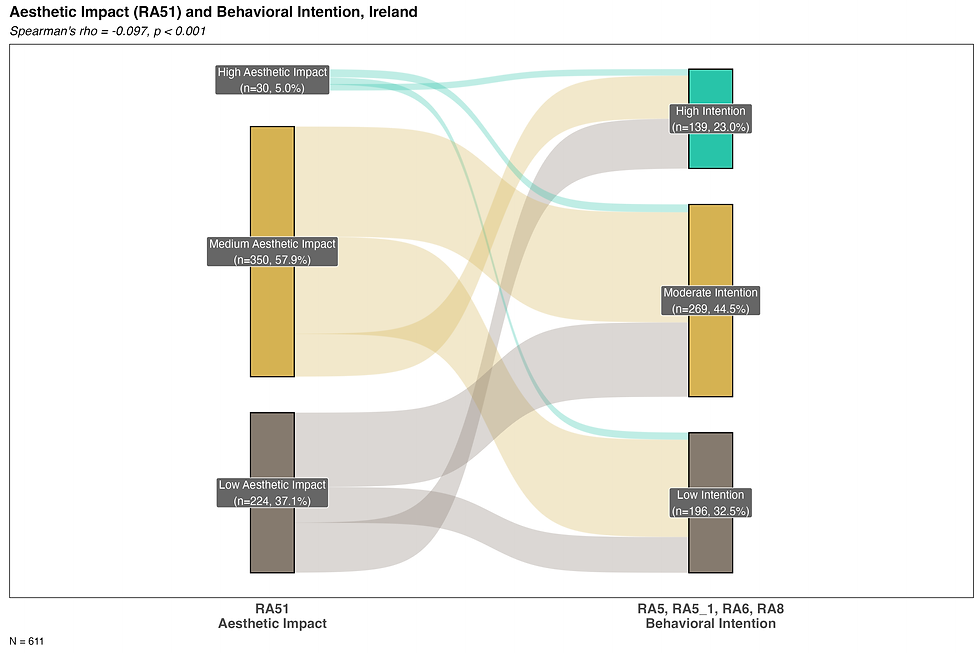
Economic impact of radon on a property value

Subjective norms

Descriptive norms

Moral norms
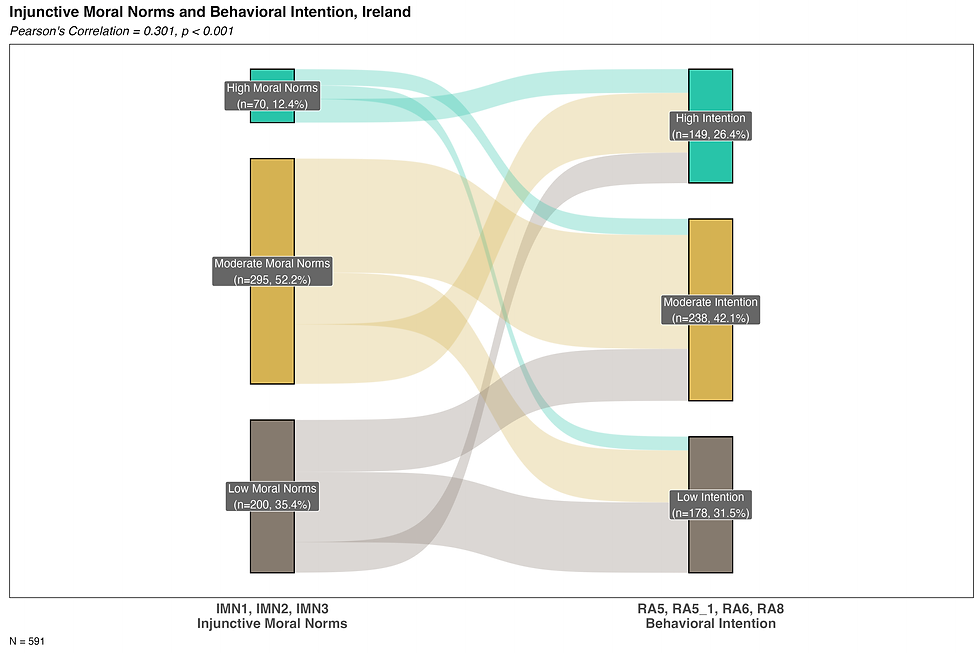
Moral values

Social influence
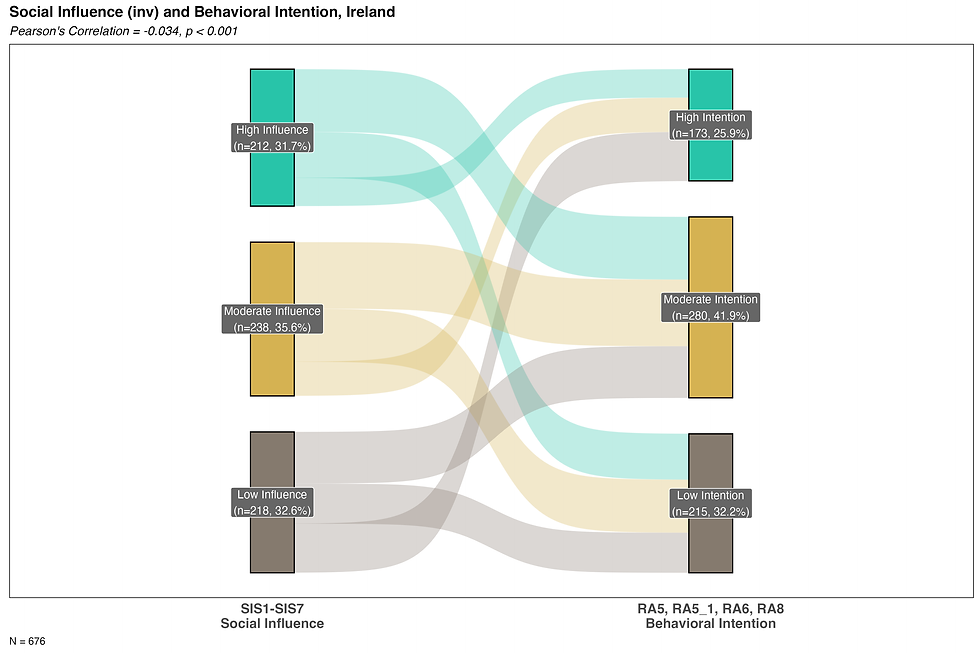
Health effect perception
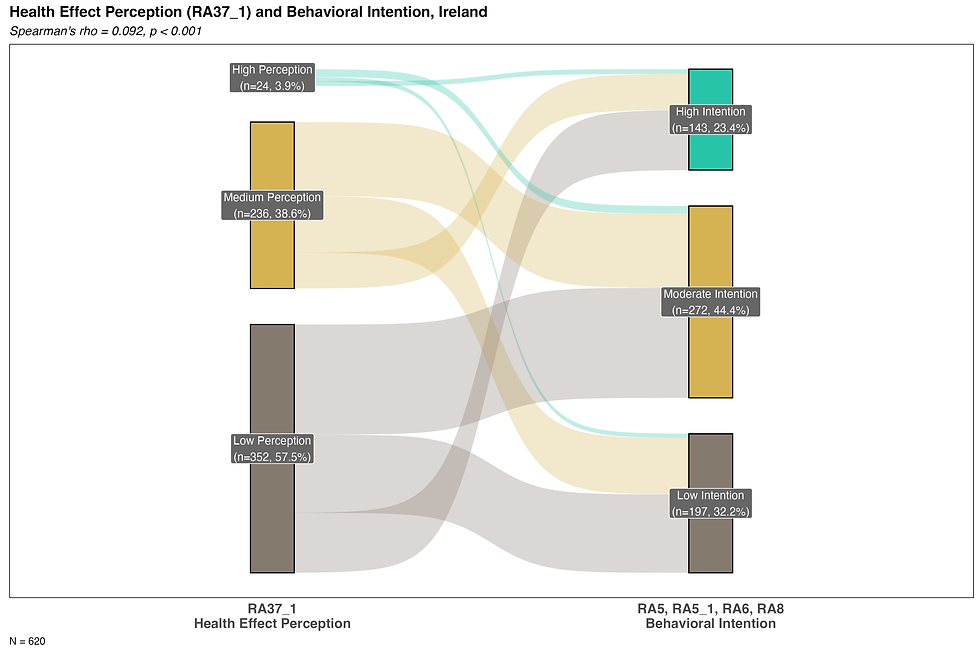
Stigma

Information processing
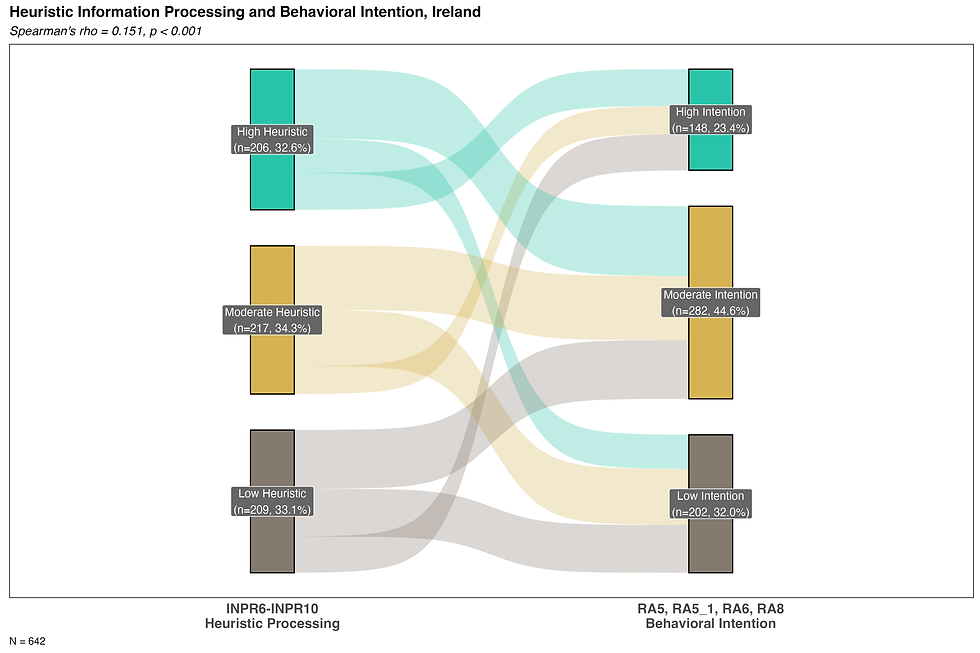


Information comprehensiveness
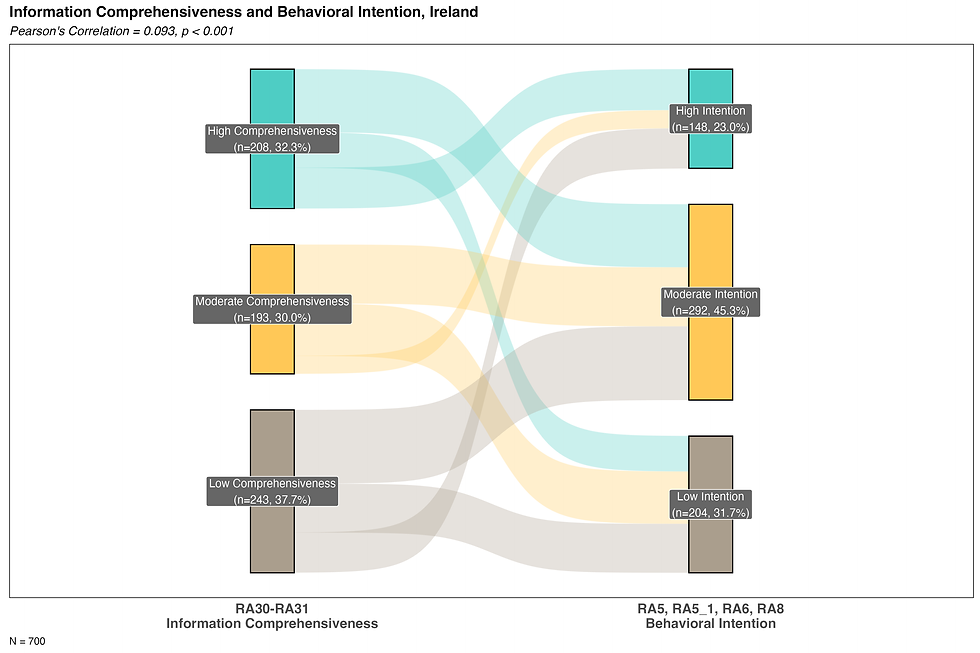
Information uncertainty

Affective response to information

Anticipated emotion
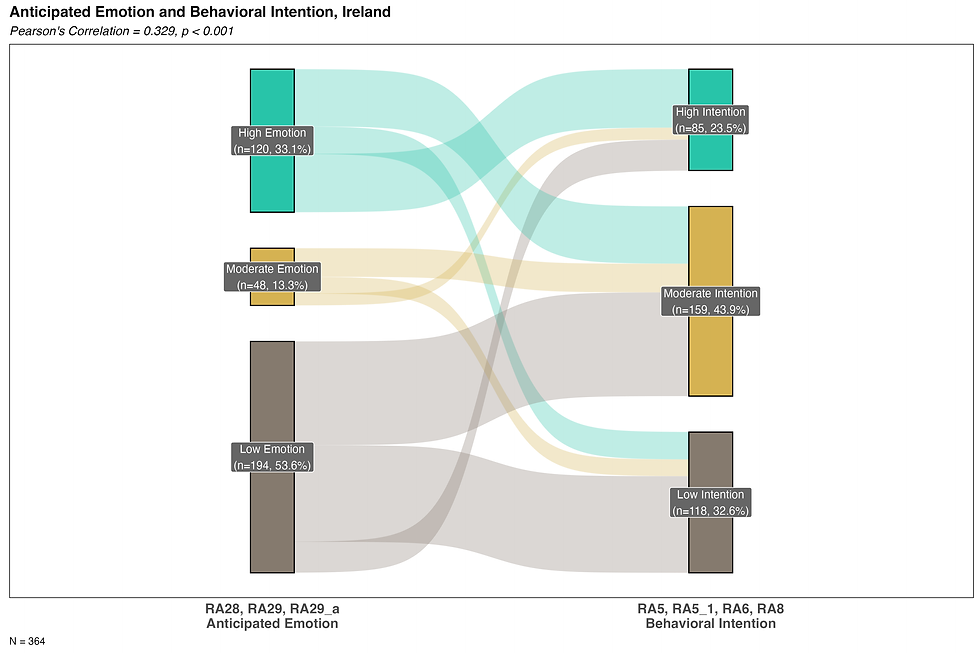
Relationship Between Radon Awareness and Behavioural Intention to Act on Radon Risk



